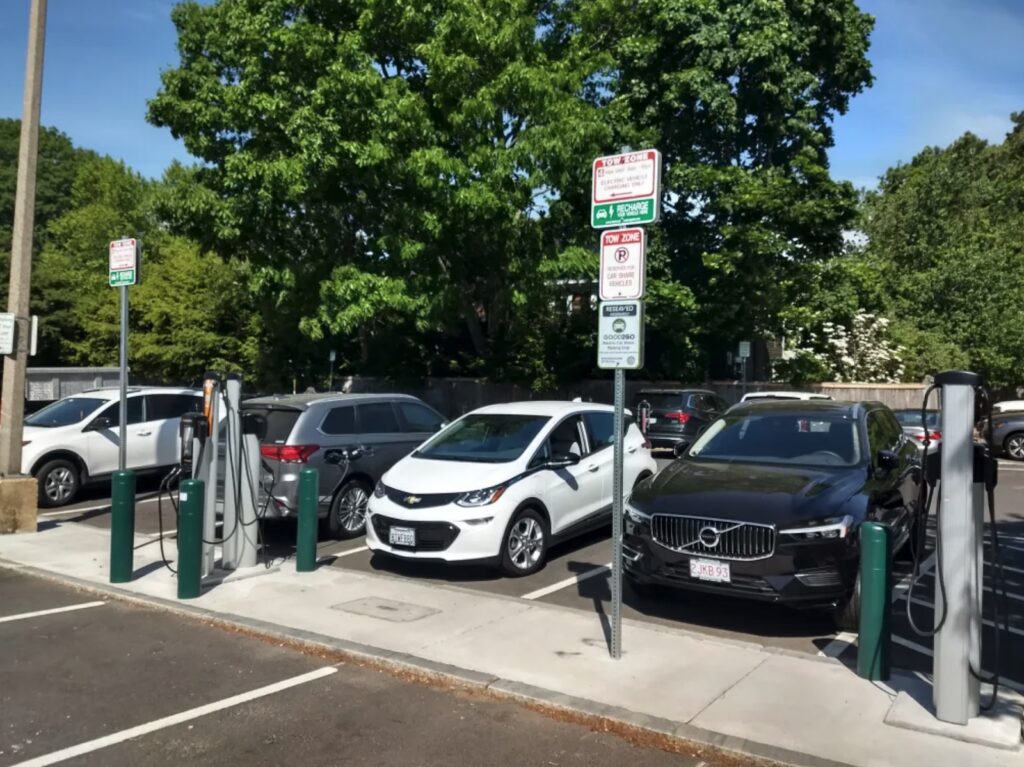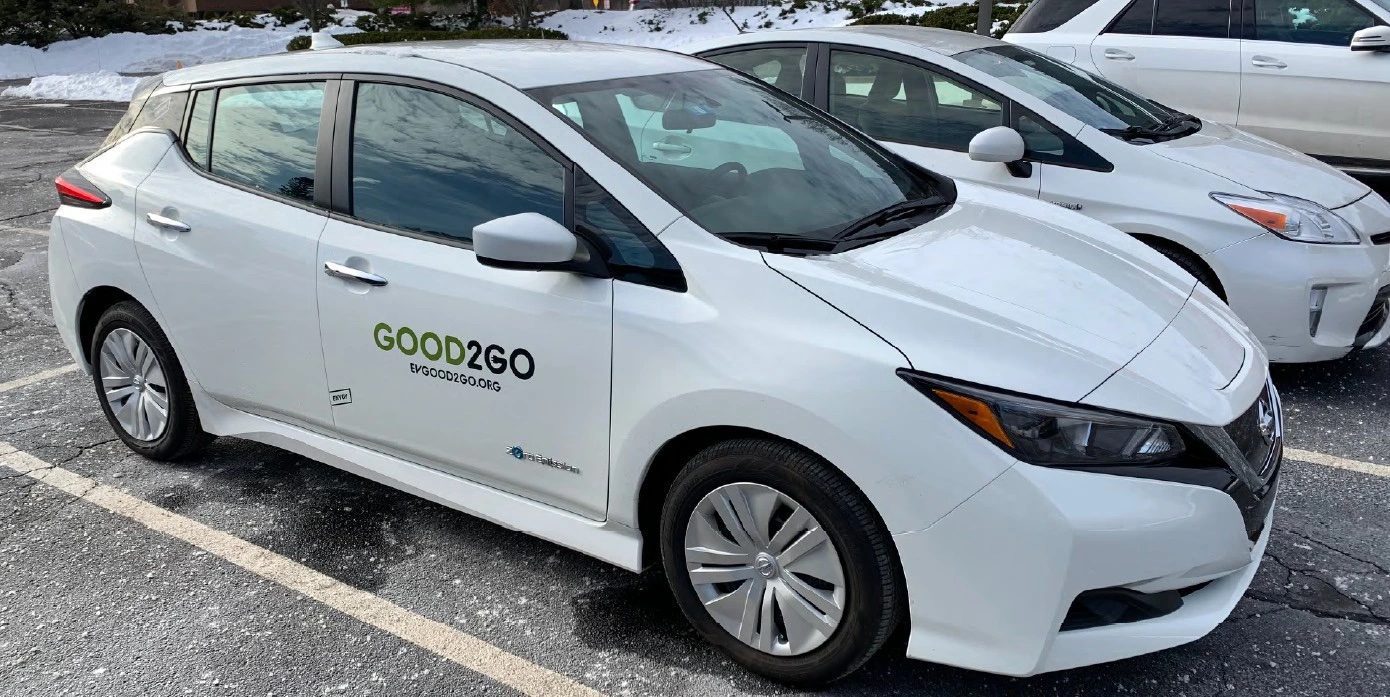Car-sharing services nationwide let people rent vehicles for a low cost, combating transportation inequity. In Washington, DC, the popular Free2Move allows consumers to only worry about safely getting to and from their destination. Customers only have to book a reservation on its app, and the company covers the refueling, maintenance, and insurance.
While Free2Move doesn’t offer electric vehicles (EVs) yet, there are several EV car-sharing companies it can look to for inspiration.
Massachusetts
Good2Go is providing significant EV car sharing in Boston, MA, to battle transit inequity and urban pollution. All customers must do is download Good2Go’s app, book a reservation, drive for as long as they want to, and park the vehicle in a designated charging spot once done. The rate is $10 per hour of driving.
The service is marketed as a great way for Bostonians to save money because they won’t have to pay for recharging, maintenance, or insurance. It combats transportation inequity by offering a reduced rate for those on limited incomes.
If customers can prove they make $59,000 or less annually or rely on government assistance programs, they can take advantage of a $5 per hour reduced rate. Not only is Good2Go helping its users save money, but the firm is expanding EV car sharing to areas of Boston, like Roxbury, and focusing on cost for low-income customers.

Colorado
Colorado CarShare has been leading the way for the Mile High City to effectively combat pollution and introduce citizens to the benefits of EV ownership. This program is part of a state-mandated push, Colorado Electric Vehicle Plan 2020, to get close to a million EVs on the road by 2030.
The firm uses an app for reservations, which users can book within 15 minutes. The rental rate is relatively low, and drivers can rent for days at a time. CarShare includes a line of fuel-efficient internal-combustion cars along with plug-in hybrid options.
CarShare has curbed emissions between 40 to 50% in the Denver metropolitan area. It also offers low-income customers subsidized rates and plans for small businesses and nonprofits looking to use EVs for fleet vehicles.
Minnesota
In Minneapolis, MN, and St. Paul, MN, energy provider Xcel Energy has partnered with HOURCAR and East Metro Strong to create the Twin Cities Electric Mobility Network. It’s a group of 70 renewable-powered curbside charging stations where EVs can be returned once renters have reached their destination.
Operated by Evie Carshare, it’s similar to Good2Go and Colorado CarShare: pay for the ride, and the company covers the insurance, maintenance, and charging. Charging hubs are also being installed throughout the Twin Cities to maximize convenience and equitable transportation regardless of demographic or logistical factors. The rate is pretty low, too, with discounts available for students and business plans.

Missouri
St. Louis, MO, has a unique EV car-sharing program. In the summer of 2021, the city enacted the St. Louis Vehicle Electrification Rides for Seniors, a social service program to assist the elderly on limited incomes or without ample access to public or personal transportation. Not only does it save social service agencies money on transit costs, but it better serves vulnerable communities.
Through Forth Mobility and other local partners, a three-year expansion project electrifies social service agency fleets taking seniors to medical appointments and delivering meals. The difference between this service and other firms is that it’s a government-run and funded program, while the others are private companies. It still tackles the issue of transit inequity but specifically for seniors, especially those who physically can’t drive anymore.
Oregon
Rather than focusing on urban areas, Oregon’s EV car-sharing service encompasses the whole state. GoForth by Forth Mobility is working with cities like Hood, Bend, and Eugene, some of the more rural spots of the state.
Anyone 21 and older with a valid driver’s license can rent an EV as the company tackles transportation inefficiencies and a lack of clean public transportation.
The first four hours of the drive are free, and $4 per hour after that. The rate is flat, too, so returning customers will never have to pay more.
Like St. Louis, Forth Mobility is part of a government initiative in Oregon to make electric cars more accessible. The Clean Rural Shared Electric Mobility Program (CRuSE) is a campaign to provide EV car-sharing in affordable housing communities in Hood River. The project sets up iPads with the company app to schedule and reserve rides for contactless drop-off and delivery. Forth is supplying the EVs for the next three years of the initiative.
Oregon is just the start for GoForth, which will be expanding to Washington State and Wyoming in the future.





